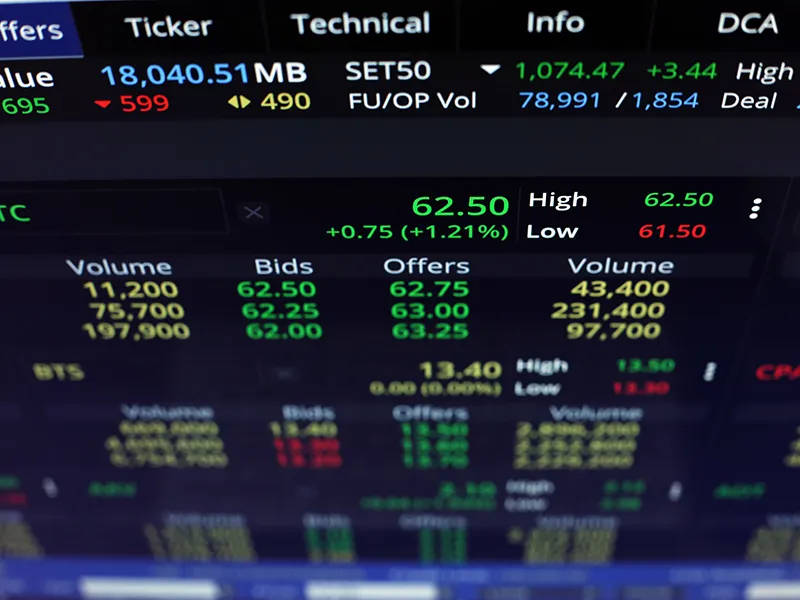
The Indian equities market has attracted thousands of new investors and traders in the past few years due to the wealth creation opportunities it has shown in recent times. Many prefer to invest in the stock markets for the long term and many others prefer day trading. During the Covid-19 induced market crash in 2020, a lot of investors preferred to stay away or mellow down their activities, however, traders continued to explore various market opportunities.
This is because, from a trader’s perspective, market volatility can offer a lot of profit-making opportunities due to sudden movements in stock prices. The market sees millions of trades take place within seconds on any given trading day and an active trader may place multiple trades simultaneously. This could mean a lot of tracking, especially to segregate unexecuted orders from executed ones. To avoid any confusion in this regard, traders can place an Immediate or Cancel Order, also known as IOC order, in share markets.
Here, we will explore the concept of IOC in the share markets.
What is IOC?
An IOC is:
- a ‘duration’ order, meaning the investor will decide the timeline for which the order will stay active in the market.
- one of the many different types of ‘orders’ that a trader can place in the stock market.
- an order type that specifically mentions that it must be executed as soon as it is released into the open market.
- an order type where buying or selling of a security is done almost immediately
If an IOC is not processed instantly, the order gets canceled, and a trader will no longer see it as a pending order. Once the order is automatically canceled, it does not require any intervention from the trader.
Do you know?
IOC is also known as a ‘zero duration’ order. This is because it has only a few seconds between the order placement and execution.
A trader can set an IOC order as:
- A limit order – meaning the trader can buy or sell the security only once it reaches a particular price point or
- A market order – meaning the trade will be executed at the current stock price.
When can a trader use an IOC order?
Traders or investors can make use of an IOC order:
- when they want to place a large order and
- if they don’t want to remain active in the market for a long time
- when they have several security options to trade but don’t have the time to track each security details
Since IOC has a condition of partial fulfillment, it offers flexibility to traders by allowing them to get the best prices from the market. Traders/investors can also build an IOC order into their online trading platform programs to ensure effective trading.
How effective is IOC?
IOC orders can be effective in case of large orders but without influencing the markets. A large order that is used for low-volume stocks can impact the stock price if it is left open for a long period.
Since IOC doesn’t stay open for a long time and due to the availability of partial fulfillment option traders have some level of flexibility. If the number of shares required by a trader are not available, an IOC still helps in assigning whatever quantity is available to the trader.
IOC orders can especially be effective for traders who make use of algorithms or programs while trading through a free trading account. It helps traders to trade effortlessly and without the need to monitor every large order placed.
Conclusion
An IOC or Immediate or Cancel order can be an effective mechanism of trading if applied correctly. Traders can make use of multiple IOC orders parallely without much effort or time required for tracking order status. However, it is important to make use of IOC carefully since multiple IOC orders can result in instances where they affect an investor’s calculations.
FAQs
A day order gets expired if it remains unfulfilled, even when a trading day comes to an end. An IOC is canceled once the unavailability of the security is confirmed.
A day order is a market order which will expire if it does not get completed at the end of the trading day. It can also be a limit order, but it will expire once the trading day comes to an end.
A trader or investor must have a Demat and trading account to place an IOC in the stock markets.
An AMO is an order type which can be placed by an investor after the market session is closed. Such orders will get placed at the opening of the next trading session on stock exchanges. AMOs can be placed between 5:00 pm and 9:00 am for NSE, currency, and NFO investments.
A Limit Order is used to buy or sell stocks at a specific price level. A Limit Order placed for buy trade will be executed only at the given limit price or a lower price. A Sell Limit Order will be executed only at the limit price or a higher price. Therefore, there is no guarantee that a limit order will get executed.


























